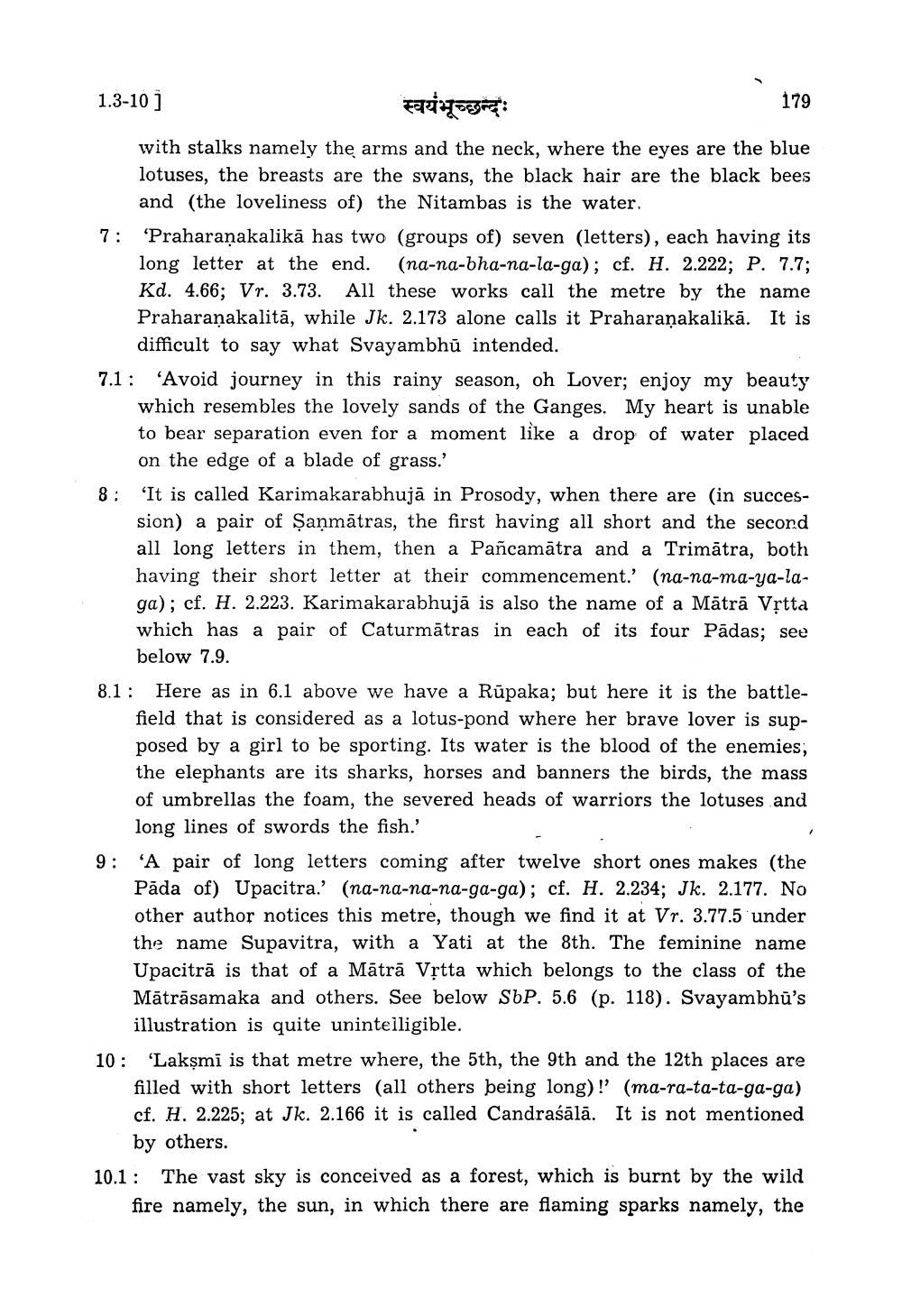________________
179
1.3-10 ]
स्वयंभूच्छन्दः with stalks namely the arms and the neck, where the eyes are the blue lotuses, the breasts are the swans, the black hair are the black bees
and (the loveliness of) the Nitambas is the water. 7: "Praharanakalikā has two (groups of) seven (letters), each having its
long letter at the end. (na-na-bha-na-la-ga); cf. H. 2.222; P. 7.7; Kd. 4.66; Vr. 3.73. All these works call the metre by the name Praharanakalitā, while Jk. 2.173 alone calls it Praharanakalikā. It is
difficult to say what Svayambhū intended. 7.1: "Avoid journey in this rainy season, oh Lover; enjoy my beauty
which resembles the lovely sands of the Ganges. My heart is unable to bear separation even for a moment like a drop of water placed
on the edge of a blade of grass.' 8: 'It is called Karimakarabhujā in Prosody, when there are (in succes
sion) a pair of Şaņmātras, the first having all short and the second all long letters in them, then a Pañcamātra and a Trimātra, both having their short letter at their commencement.' (na-na-ma-ya-laga); cf. H. 2.223. Karimakarabhujā is also the name of a Mātrā Vịtta which has a pair of Caturmātras in each of its four Pādas; see
below 7.9. 8.1: Here as in 6.1 above we have a Rūpaka; but here it is the battle
field that is considered as a lotus-pond where her brave lover is supposed by a girl to be sporting. Its water is the blood of the enemies, the elephants are its sharks, horses and banners the birds, the mass of umbrellas the foam, the severed heads of warriors the lotuses and long lines of swords the fish. 'A pair of long letters coming after twelve short ones makes (the Päda of) Upacitra.' (na-na-na-na-ga-ga); cf. H. 2.234; Jk. 2.177. No other author notices this metre, though we find it at Vr. 3.77.5 under the name Supavitra, with a Yati at the 8th. The feminine name Upacitrā is that of a Mātrā Vịtta which belongs to the class of the Mātrāsamaka and others. See below SbP. 5.6 (p. 118). Svayambhu's
illustration is quite unintelligible. 10: ‘Lakşmi is that metre where, the 5th, the 9th and the 12th places are
filled with short letters (all others being long)! (ma-ra-ta-ta-ga-ga) cf. H. 2.225; at Jk. 2.166 it is called Candraśālā. It is not mentioned
by others. 10.1 : The vast sky is conceived as a forest, which is burnt by the wild
fire namely, the sun, in which there are flaming sparks namely, the




